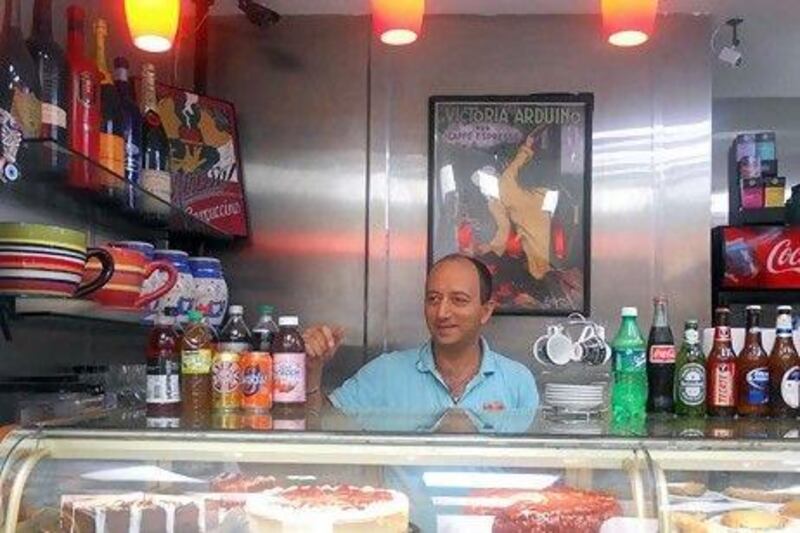MIAMI, FLORIDA // Nidal Kalach, a US citizen of Syrian descent, has put his dream of returning to his home country on hold.
The 47-year-old restaurant businessman, from the state of Florida, thought of moving back to Syria and opening a hotel in Maaloula, a predominately Christian town from where his family originates.
"I thought about the possibility of settling in Damascus and setting up a first-class hotel in Maaloula. I wanted to invest in my country."
But Mr Kalach, who left Damascus in 1991, is now reluctant to return.
"I am concerned if the regime is toppled, Syria will fall in to the hands of extremists. Nobody will protect the rights of the Christians. Look at what happened to the Christians in Egypt and Iraq. Christians keep losing," he said, as he drank white tea during an interview at crowded shopping mall in Miami.
As the regime of Bashar Al Assad struggles to keep control, Syria's roughly two million Christians - who make up about 10 per cent of the population - are bracing for the worst. Christian heritage in Syria dates back to the days of the Christ. In Maaloula, for example, the language of Christ, Aramaic, is still spoken. Rami Sinjar, a 31-year-old Christian from Maaloula, left Syria with his family more than two decades ago and now lives in Miami. He believes chaos will grip Syria without a secular regime.
"The regime is protecting the Christians," he said. "I've been to Homs two years ago, wearing a cross, and nobody questioned my beliefs."
"Bashar has improved our churches, donated money to improve our villages. He built a school to teach the Aramaic language in Maaloula," he said. Some Christians have held prominent positions in Mr Al Assad's government including defence minister Daoud Rajha, who was assassinated on July 18 in a bombing which killed three other top security officials.
The Alawites - the sect to which Mr Al Assad belongs, has dominated the country's ruling class for four decades and makes up 12 per cent of the country's population.
Despite reluctance to get involved in the uprising, violent incidents against Christians and churches do appear to be on the rise.
In July, Brig Gen Nabil Zougheib - a Christian and missile expert - and his family were killed in a Christian neighbourhood in Damascus.
In Homs, several churches and Christian centres were damaged in fighting between rebels and government forces. In Miami, despite their different views on the events in Syria, Christian immigrants are united in their concern.
At a recent gathering after mass at Miami's Saint Jude Melkhite Roman Catholic Church, Syrian churchgoers there were planning to raise donations for Syrian churches and Christians displaced by the conflict in their homeland.
"We are deeply concerned about the future of Christians in Syria, we don't want to see another Iraq," said Bassam Murad, referring to attacks by extremist militants on the Christian community in Iraq in the chaotic years after Saddam Hussein's 2003 toppling. A founding member of the Miami church, Mr Murad, 56, spent time as a youth in Aleppo, a city now torn by violence between regime loyalists and rebels.
Others, such as Fatahallah Kadid, say it is the Alawite minority that has stirred sectarianism for decades.
Although he was born in Venezuela, Mr Kadid, 62, lived in Aleppo for a dozen years from the age of five.
"Unfortunately Christians, who are the indigenous people in Syria, see themselves as a minority. The Alawites cracked down on religious Muslims which, in turn, generated hatred towards Christians too. It is the Assad regime and his group that created sectarianism in the country to remain in power."
Mr Kadid said he was politically active as a student in Syria. He said he had friends who were jailed and tortured by the Syrian security for their political views "My best friend then, Amin, was jailed at the intelligence prison for twenty years. He was a newly wed and when he left prison his son was 20.
"I knew if I stayed in Syria, I would have faced same future as my friends." But another Syrian immigrant, Rizallah, who would only give his first name, was more optimistic.
"Christians have always lived in Syria side by side in peace. They are not going to suffer," said the 65-year-old. "We need to have faith. Christians have the right to live in their country."
foreign.desk@thenational.ae
Syria’s Christians face uncertain future
As the regime of Bashar Al Assad struggles to keep control, Syria's roughly two million Christians, who make up about 10 per cent of the population, are bracing for the worst.

Editor's picks
More from the national




